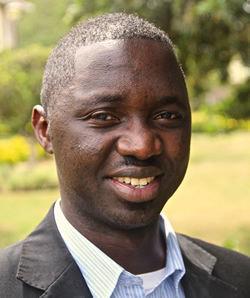
Finding Perspective on Funding and Capacity for Refugees and IDPs
Alex Rohlwing | November 23, 2015
Responding To: Head of U.N. Refugee Agency Calls for Greater Multilateral Cooperation on Migration
Lina Zdruli
Antonio Guterres pushes us to think beyond the immediate crisis-management approach to refugees and look at long-term solutions. One of the reasons the European Union is having such a difficult time advancing a rapid, organized response to the current refugee crisis is the lack of coordination amongst members. The EU does not have a common refugee assessment policy, a shared database for the registration of asylum-seekers or a common pool of funds aimed specifically at offering emergency support and integration programs, such as languages classes and skills retraining. Similarly, there is no international convention to recognize as refugees those fleeing for environmental causes, which is making it increasingly difficult for countries to cope with the acceptance of large migration flows.
The High Commissioner mentioned the case of entire populations forced to migrate due to the lack of access to clean water, productive land or the occurrence of natural disasters. Climate change further exacerbates this issue through drought and desertification, two of the major factors contributing to food insecurity because they render land unsuitable for agriculture. Without productive lands, farmers cannot grow crops and are forced to leave their land plots in search of more fertile territories, which often cross national boundaries. Currently, over 1.5 billion people depend on degrading land and more than 1 billion are experiencing droughts. Climate change will exacerbate these issues, and most likely increase the number of environmental refugees, presently surpassing 36 million worldwide.
As an example, we can look to the Sahel region (roughly located between Senegal and the Republic of Sudan). Before the 1900s, the Sahel region would suffer drought every ten years. Since the 1960s, it has had a drought approximately ever two years. The persistence of drought is making it increasingly more difficult for those living off the pockets of arable land in the Sahel, and is one of the contributing causes of displacement for local populations.
The international community, paired with the UNHCR and the International Organization for Migration (IOM), need to draft legislation so these groups of forcefully displaced populations are not simply considered economic migrants but rather refugees under human rights law. If the legislative framework is set in place, environmental asylum-seekers can be accepted as refugees, and in case of an extended drought or unpredicted natural disaster, when groups are most likely to emigrate in large numbers, they can be rapidly accepted by hosting countries as such. Moving beyond “crisis-management mode” in the case of refugees can better protect these fragile groups as well as facilitate integration for host countries, and hopefully prevent the recurrence of unpreparedness, such as the current situation in Europe.
Lina Zdruli is pursuing a master's in German and European studies.

Alex Rohlwing | November 23, 2015

António Guterres | November 23, 2015

Emmanuel Foro | November 23, 2015

Patrice Ndayisenga | November 23, 2015

Patrick Griffith and Jennifer Podkul | November 23, 2015

Susan Martin | November 23, 2015

Tobias Vestner | November 23, 2015